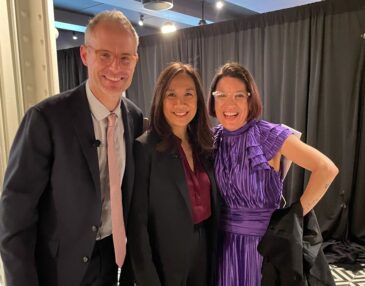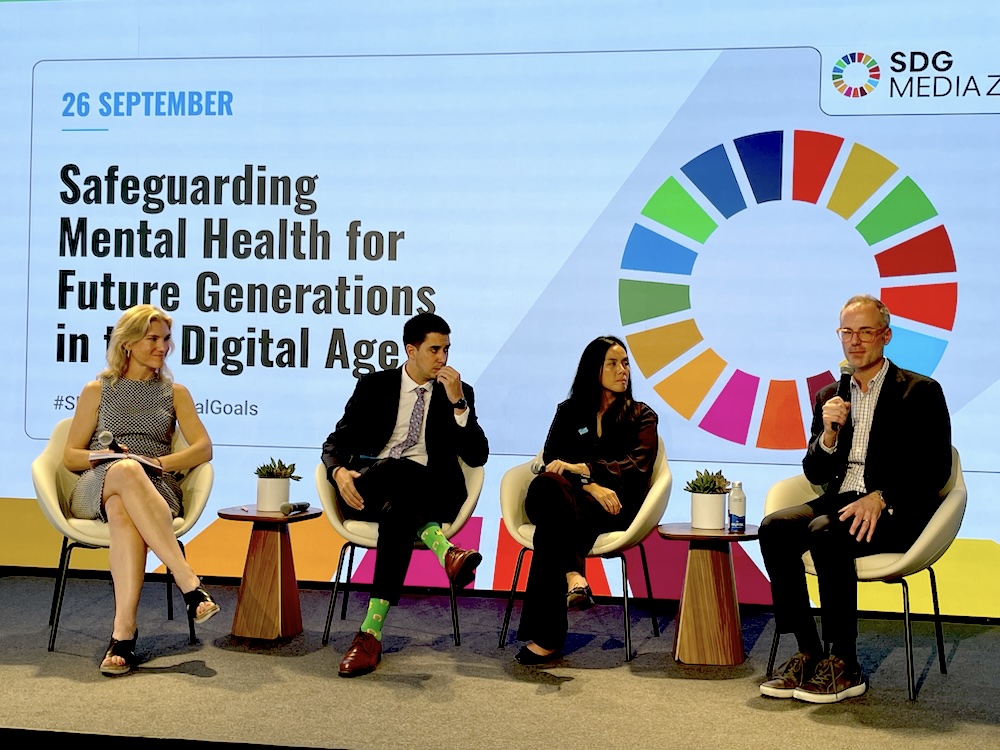Last week, during the United Nations General Assembly (#UNGA80), the Joan Ganz Cooney Center was honored to participate in important conversations about how technology is shaping young people’s lives—and what it will take to ensure more positive and inclusive digital futures.

On Tuesday, September 23, 2025, the Center’s Executive Director Michael Preston hosted “The ABCs of Digital Well-Being: Centering Children in the Future of Technology” at the Concordia Annual Summit, convening industry leaders for an off-the-record roundtable discussion on advancing youth digital well-being. He then joined Axios House for “Empowering Our Youth to Thrive in a Digital World” with Nicholas Johnston, Publisher of Axios, and Tami Bhaumik, Vice President of Civility at Roblox. The discussion explored how online spaces can be a source of connection and creativity for young people, while also raising new challenges around safety and mental health. Tami and Michael discussed the importance of policies that foster safer environments; how companies like Roblox are designing critical safety features that enhance users’ ability to enjoy digital play experiences; and the role of digital literacy in helping kids, parents, and educators navigate an evolving digital world.

On Friday, September 26, Michael spoke at the SDG Media Zone alongside Felipe Paullier Olivera, United Nations Assistant Secretary-General for Youth Affairs, and Joanna Lai, Health Specialist at UNICEF, in a conversation moderated by journalist Anya Kamenetz. “Safeguarding Mental Health for Future Generations in the Digital Age” focused on the rising influence of AI and digital platforms in how children learn, connect, and experience the world. The panelists discussed ways of safeguarding young people’s mental health while advancing technologies that uphold children’s rights and well-being. Michael shared how the Responsible Innovation in Technology for Children (RITEC) initiative gives designers and companies an evidence-based framework for how digital play affects children’s well-being, and guidance to make better design choices.
Across all of these conversations, several themes resonated:
- Safety and well-being must go hand in hand. Protecting children in digital spaces is essential, but we must also design for creativity, relationships, and flourishing.
- Families need support. Caregivers often feel overwhelmed by the digital choices they must make with and for their children. They are looking for playful, shared experiences that empower both kids and adults.
- Children must be partners, not just audiences. Technology and media companies should engage young people directly as co-creators in shaping their digital experiences.
These priorities reflect the Center’s ongoing work to translate research into practice through RITEC and our Well-Being by Design initiatives to help practitioners and companies apply evidence in real products and experiences.
We are grateful to have been part of these important dialogues during UNGA80, and look forward to continuing to work with partners across sectors to ensure that digital environments serve children and families worldwide.

